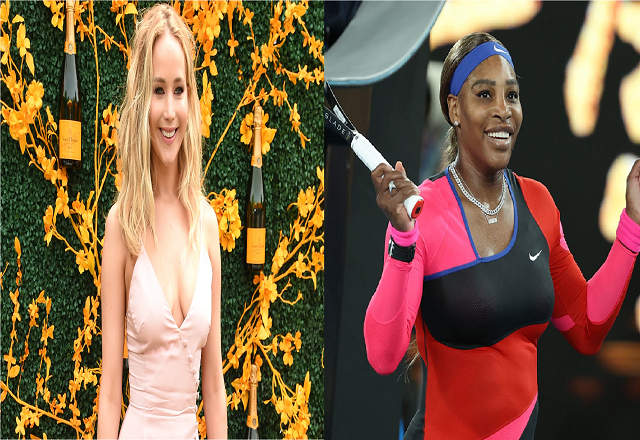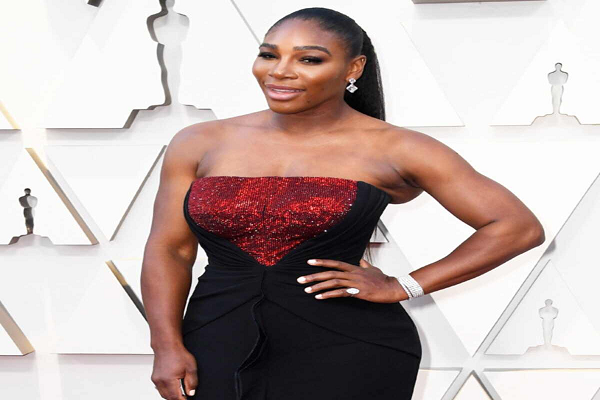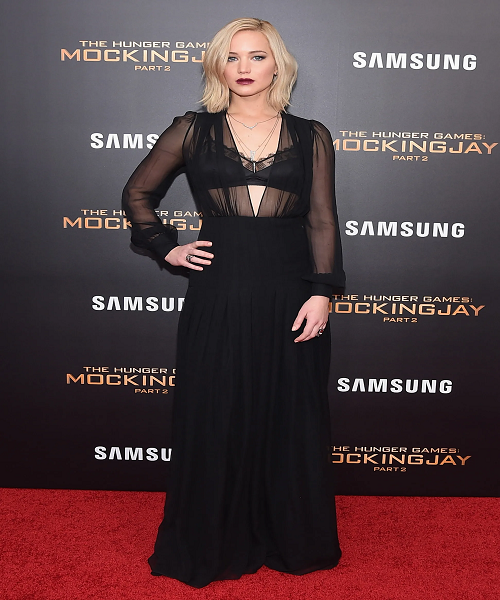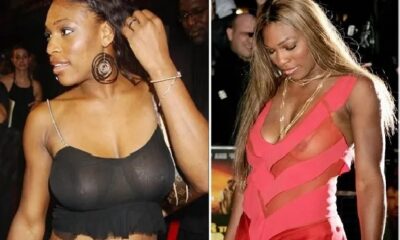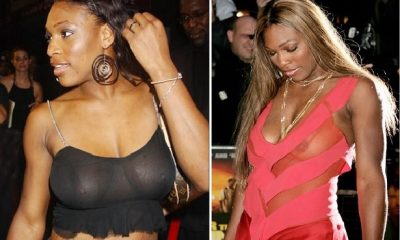News
Serena Williams And Jennifer Lawrence Both Looks Hot In This Stunning Outfit – But Who’s Hotter ??
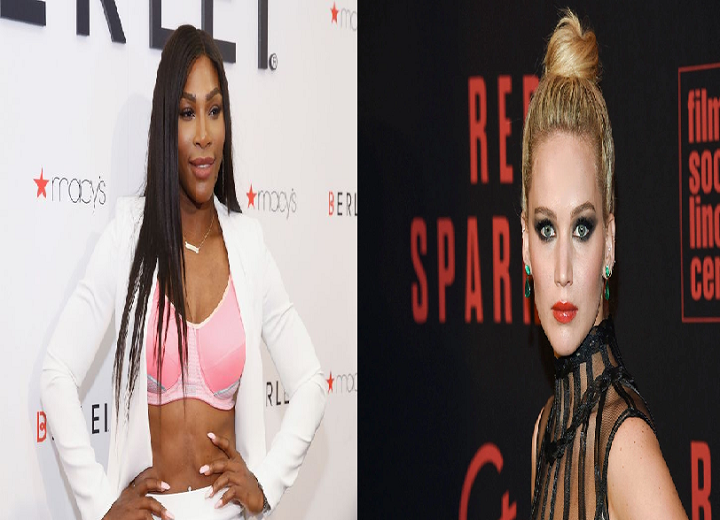
Serena Williams has dominated women’s tennis this year, sweeping the Australian Open, French Open, and Wimbledon tournament.
But now stories about her astonishing record have been replaced with headlines about Williams’s appearance, beginning with a recent New York Times article.
The controversial piece on female tennis players, which aimed to explore the pressures of looking feminine on the court, was poorly received.
Many readers took to Twitter to accuse the article of “body shaming” Williams’s muscular figure. Her legions of fans (who dub themselves #Renasarmy) quickly came to her defense, including author J. K. Rowling, who tweeted an image of the tennis superstar looking stunning in a red bandage dress.
The media and the masses have scrutinized female athletes’ looks for as long as women have been playing sports.
Just recently, the head of the Confederation of Brazilian Football, Marco Aurelio Cunha, said women’s soccer had only gained popularity due to the rise of beautiful soccer players on the field and that “now the shorts are a bit shorter, the hair styles are more done up.”
In his opinion, their looks were responsible for drawing in a record number of viewers for this year’s World Cup final—not **Carli Lloyd’**s impressive hat trick.
The real novelty here isn’t the media taking aim at women’s bodies, it’s Williams’s attitude toward the controversy. On Sunday night, at the Champions dinner in London, Williams chose to wear an embellished, figure-hugging pink dress, which showed off her biceps and proved muscles and femininity aren’t mutually exclusive.
This morning, she posted a photo on Instagram of herself in a bikini while lying on a beach in Sweden. Both sent out a strong message: She’s more than comfortable in her own skin.
Williams’s nonchalant attitude reminds us of another international superstar who is equally as unconcerned with the pressures of looking a certain way: Jennifer Lawrence.
Just last week at San Diego’s Comic-Con, Lawrence spoke candidly, as she tends to do, about body expectations in Hollywood—a subject many young starlets prefer to avoid. After sharing a funny anecdote of a woman who swatted her hand away after she reached for a french fry, Lawrence talked about how weight standards have changed in her own career.
“Once you get to a certain place, people will hire you and they want you to be in their movie, so they don’t care,” she said. “It’s more about the struggle for the actors and actresses who haven’t made it to a certain place.”
Before she became one of the most well-paid and in-demand actresses of the moment, Lawrence faced those same unfair expectations.
In a 2013 interview with Harper’s Bazaar she confessed, “Somebody told me I was fat, that I was going to get fired if I didn’t lose a certain amount of weight.” But Lawrence, much like Williams, did not succumb to the pressure.
During interviews, red-carpet appearances, and press conferences, she continued to voice her love of food, and that she was not willing to starve herself to get ahead in her career.
“I’d rather look a little chubby on camera and look like a person in real life, than look great onscreen and look like a scarecrow in real life,” she said back in 2011.
The body acceptance that Lawrence and Williams display is not just refreshing, it’s changing the standards of beauty in both sports and Hollywood—and their attitudes serve as an example for rising stars onstage, on the field, and beyond.

